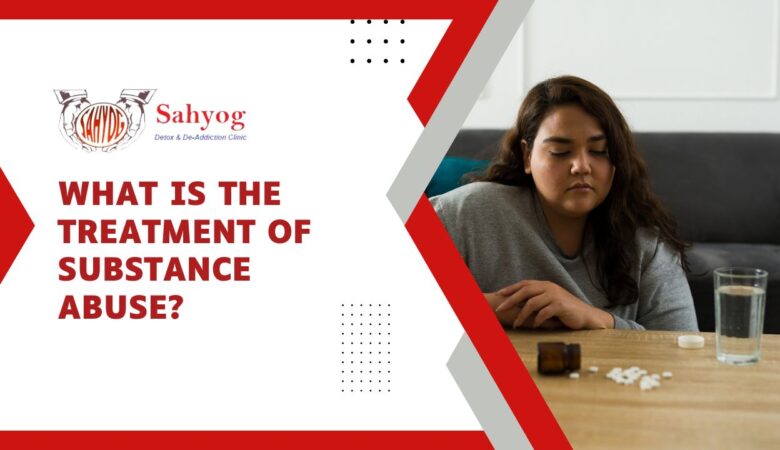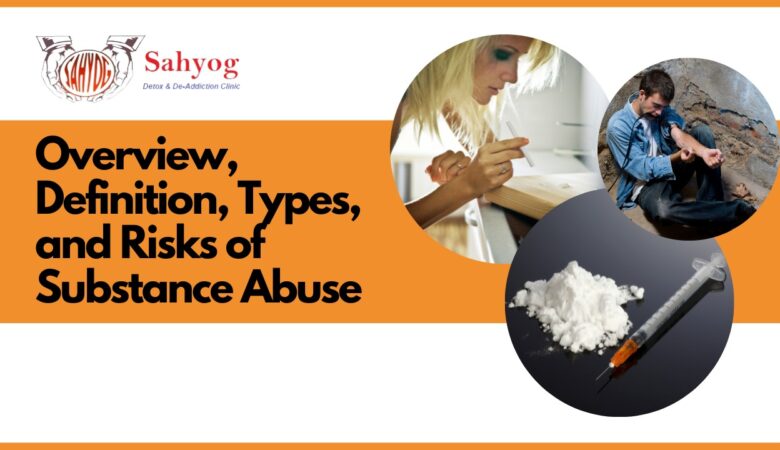What is the Treatment of Substance Abuse
Struggling with substance abuse can feel like navigating a never-ending maze, but there is always a way out. The journey to recovery may seem daunting, but with the right treatment and support system in place, it is entirely possible to break free from the chains of addiction. In this blog post, we will explore the various treatments available for substance abuse, ranging from evidence-based therapies to holistic approaches and medication-assisted options. Join us as we delve into the world of substance abuse treatment and discover how individuals can reclaim their lives from addiction. Understanding Substance Abuse Substance abuse is a complex issue that involves the harmful use of drugs or alcohol, leading to negative consequences in various aspects of a person’s life. It goes beyond mere recreational use and develops into a pattern of dependency and compulsive behavior. Individuals struggling with substance abuse often find themselves unable to control their consumption, even when faced with adverse effects on their health, relationships, and daily functioning. The underlying causes of substance abuse can vary from genetic predispositions to environmental factors such as trauma, stress, or peer influence. Additionally, mental health disorders like depression or anxiety can also contribute to the development of substance use disorders. Understanding substance abuse requires recognizing it as a chronic disease that affects brain function and behavior. It’s crucial to approach individuals dealing with substance abuse with empathy and understanding rather than judgment. By shedding light on the complexities surrounding addiction, we can better support those in need and guide them towards effective treatment options tailored to their specific circumstances. Types of Substance Abuse Treatment Substance abuse treatment comes in various forms tailored to meet individual needs. One common type is inpatient treatment, where individuals stay at a specialized facility for an extended period to receive intensive care and support. This option provides a structured environment away from triggers that may lead to substance use. On the other hand, outpatient treatment allows individuals to continue living at home while attending therapy sessions and receiving support. It offers flexibility for those who have work or family commitments but still need help overcoming substance abuse. Both inpatient and outpatient treatments can be effective depending on the severity of the addiction and personal circumstances. Therapies such as cognitive-behavioral therapy (CBT) and motivational interviewing are evidence-based approaches used in substance abuse treatment. These therapies help individuals understand their behaviors, develop coping strategies, and make positive changes in their lives. Additionally, holistic approaches like yoga, meditation, and acupuncture are gaining popularity for addressing the physical, emotional, and spiritual aspects of recovery. Remember that each person’s journey to recovery is unique, so finding the right combination of treatments is key to success. Inpatient vs Outpatient Treatment When it comes to treating substance abuse, one of the key decisions to make is whether inpatient or outpatient treatment is the best option. Inpatient treatment involves staying at a facility for a period of time, receiving round-the-clock care and support. This can be beneficial for those who require intensive supervision and structure to overcome their addiction. On the other hand, outpatient treatment allows individuals to attend therapy sessions and receive support while still living at home. This option provides more flexibility for those who have responsibilities they need to maintain during their recovery journey. Inpatient treatment offers a highly immersive experience where individuals can focus solely on their recovery without external distractions. It also provides a safe and supportive environment away from triggers that may lead to relapse. Outpatient treatment, on the other hand, allows individuals to continue with their daily routines while learning coping mechanisms and strategies to manage cravings and triggers in real-life situations. Both options have their benefits, and the choice between inpatient and outpatient treatment will depend on individual needs, severity of addiction, support system available outside of treatment, and personal preferences. Evidence-Based Therapies for Substance Abuse Substance abuse treatment often involves evidence-based therapies that have been shown to be effective in helping individuals overcome addiction. One common therapy is Cognitive Behavioral Therapy (CBT), which helps individuals identify and change negative thought patterns and behaviors associated with substance use. Another effective approach is Motivational Interviewing, a client-centered counseling style that helps individuals resolve their ambivalence about quitting substance use and motivates them to make positive changes. Contingency Management is also widely used, providing incentives for maintaining abstinence through rewards like vouchers or prizes. Dialectical Behavior Therapy (DBT) combines cognitive-behavioral techniques with mindfulness practices to help individuals regulate emotions and cope with stress without resorting to substance use. These evidence-based therapies offer valuable tools for addressing the underlying issues contributing to substance abuse and promoting long-term recovery. Holistic Approaches to Treating Substance Abuse When it comes to treating substance abuse, holistic approaches focus on healing the individual as a whole – mind, body, and spirit. These approaches go beyond just addressing the addiction itself and consider other factors that may contribute to substance abuse. Holistic treatments often include therapies like yoga, meditation, art therapy, acupuncture, and nutritional counseling. These methods aim to promote overall well-being and help individuals develop coping mechanisms for stress and triggers without relying on substances. Incorporating activities that support mental health and emotional stability can be instrumental in recovery. By addressing underlying issues such as trauma or co-occurring disorders through holistic means, individuals can learn how to manage their emotions in healthier ways. The goal of holistic treatment is not only to overcome addiction but also to improve one’s quality of life in all aspects. Embracing a holistic approach can empower individuals to make positive changes that benefit their overall health long-term. The Role of Medication-Assisted Treatment Medication-assisted treatment (MAT) is a crucial component in the comprehensive approach to treating substance abuse. It involves using medications in combination with counseling and behavioral therapies to provide a holistic solution. MAT can help manage withdrawal symptoms, reduce cravings, and normalize brain chemistry affected by substance abuse. This approach can significantly increase the chances of successful recovery for individuals struggling with addiction.


